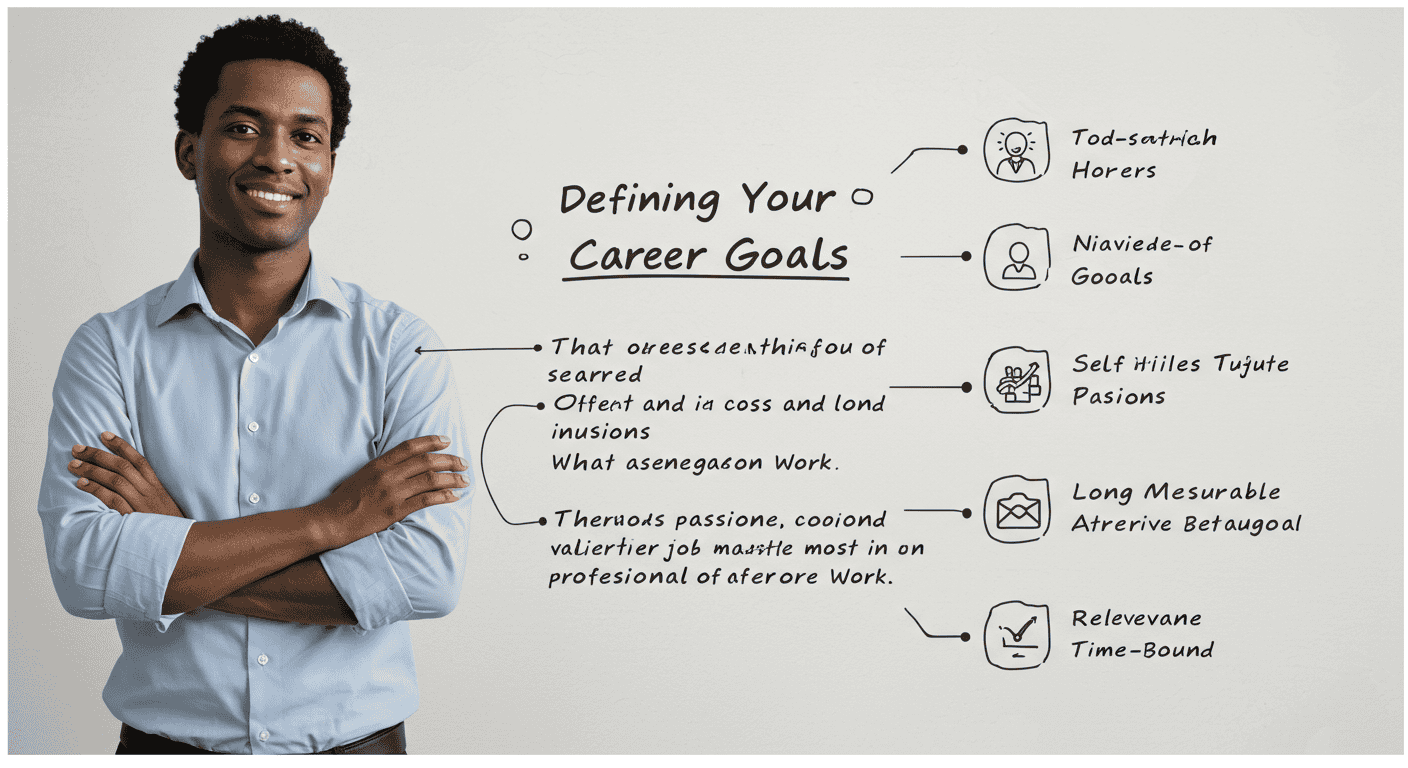
In today’s fast-paced and ever-evolving job market, landing your dream job and advancing your career demands more than just qualifications on paper. With industries being reshaped by technology and remote work becoming the new norm, professionals must adapt and refine their strategies to stand out from the competition. Whether you are a recent graduate embarking on your first career move or a seasoned professional seeking growth, this blog will guide you through every stage of the job search and career development process. From defining clear career goals and crafting a standout resume to mastering interviews, building a powerful personal brand, and balancing work with personal growth, we cover it all. By the end of this guide, you will have actionable steps and insights to help you navigate the modern workforce, seize opportunities, and chart a path to long-term success.
Understanding the Modern Job Market
The job market of the 2020s is characterized by rapid change, driven by digital transformation, globalization, and shifting corporate cultures. Many roles that were once confined to traditional office settings now embrace remote or hybrid formats, opening up opportunities across geographical boundaries. At the same time, automation and artificial intelligence are altering the demand for specific skills, placing a premium on digital literacy and adaptability. It is essential to stay informed about industry trends, emerging roles, and the skill sets that employers value most. Regularly scanning job boards, attending webinars, and reading industry publications can help you maintain a competitive edge.
Embracing flexibility is key: being open to contract work, part-time positions, or project-based roles can broaden your experience and expand your professional network. Additionally, companies increasingly prioritize soft skills—such as communication, problem-solving, and emotional intelligence—alongside technical expertise. By understanding these shifts and proactively developing both hard and soft skills, you position yourself as a well-rounded candidate ready to contribute in diverse work environments.
Researching future-proof industries and in-demand roles can give you a strategic advantage. Examine labor market data and identify sectors that are projected to grow, such as renewable energy or data analytics. Reach out to professionals already working in these fields for informational interviews and insights. This proactive approach helps you target opportunities that align with both your passions and market demand, setting the stage for a resilient and rewarding career.
Defining Your Career Goals

A clear vision of your short-term and long-term objectives provides direction and motivation throughout your job search and professional journey. Start by conducting a self-assessment: what are your strengths, passions, and the values that matter most in your work? Identify industries or roles that align with your interests and offer growth potential. Setting SMART goals—Specific, Measurable, Achievable, Relevant, and Time-bound—allows you to track progress and make adjustments as needed.
For example, if you aim to transition into a leadership role within two years, break down the skills and experiences required for management positions. Enroll in leadership workshops, seek mentorship, and volunteer for projects where you can demonstrate initiative. By mapping out milestones and celebrating small wins, you maintain momentum and stay focused on your career trajectory.
Your career goals should be dynamic, evolving as you gain experience and insights. Review and adjust your objectives every quarter to stay aligned with industry changes and personal priorities. Solicit feedback from mentors and peers to refine your direction, and be willing to pivot when new opportunities emerge. This agile goal-setting process ensures that your career path remains both achievable and fulfilling over time.
Crafting a Standout Resume and Cover Letter
Your resume and cover letter are often your first impression on potential employers. Tailor each application to the job description, highlighting relevant accomplishments and measurable results. Avoid generic statements and focus on how you added value in previous roles—quantify achievements with metrics whenever possible.
- Customize Your Resume: Align bullet points with job requirements and use industry-specific keywords to pass applicant tracking systems.
- Optimize Your Cover Letter: Address the hiring manager by name, share a brief narrative about why you’re passionate about the role, and tie your background to the company’s mission.
- Prioritize Readability: Choose a clean, modern layout with consistent formatting, and keep your resume to one or two pages.
- Proofread Thoroughly: Typos and grammatical errors can undermine your credibility. Use tools or ask a trusted friend to review your documents.
By investing time in personalization and clarity, you increase your chances of catching a recruiter’s eye and securing an interview.
Leveraging Online Platforms and Networking
In the digital age, online platforms such as LinkedIn, industry-specific forums, and professional associations are invaluable for connecting with recruiters and peers. Optimize your LinkedIn profile by adding a professional photo, crafting a compelling headline, and summarizing your expertise with concise bullet points. Engage with content by sharing insights, commenting on relevant posts, and publishing articles to showcase your knowledge.
Networking remains one of the most effective ways to uncover hidden job opportunities. Attend virtual and in-person events, join alumni groups, and participate in mentorship programs. When reaching out, be genuine and focused: ask thoughtful questions, offer to help, and follow up with a personalized message. Building and nurturing relationships can lead to referrals and insider information about upcoming roles.
Beyond traditional networking, consider creating content that showcases your expertise. Host webinars, record podcasts, or produce short videos demonstrating your skills and insights. Share them on your professional profiles and relevant forums to attract attention from industry leaders and potential employers. Active participation in niche online communities, such as Slack or Discord groups, can also expose you to hidden opportunities and collaborative projects.
Mastering the Interview Process
Securing an interview is a significant milestone, but preparation is crucial to converting that opportunity into a job offer. Research the company’s history, culture, products, and recent news. Prepare responses to behavioral questions using the STAR method (Situation, Task, Action, Result), and practice articulating your experiences clearly and confidently.
Don’t overlook non-verbal communication: maintain eye contact, adopt an open posture, and dress appropriately for the company’s environment. Prepare thoughtful questions for your interviewer that demonstrate your interest and enthusiasm. Finally, always send a follow-up thank-you email within 24 hours, reiterating your key qualifications and appreciation for their time.
Continuing Education and Skill Development
Lifelong learning is vital in an era where technology and industry standards evolve rapidly. Identify skills gaps by examining job postings and industry reports, then pursue relevant certifications, workshops, or online courses. Platforms like Coursera, Udemy, and LinkedIn Learning offer flexible options to acquire new competencies, from data analysis and digital marketing to project management and coding.
In addition to technical skills, focus on developing soft skills such as leadership, communication, and adaptability. Volunteer for cross-functional projects at work, join public speaking clubs, or seek feedback from peers to strengthen these areas. Continuous skill enhancement not only boosts your employability but also positions you as a proactive and growth-oriented professional.
Building and Showcasing Your Personal Brand
Your personal brand is the unique combination of your experiences, skills, and values that sets you apart in the job market. Create a professional online presence by developing a personal website or portfolio that highlights your projects, testimonials, and thought leadership. Regularly publish blog posts, case studies, or presentations that demonstrate your expertise and insights.
Engage on social media with consistency and authenticity: share relevant articles, comment on industry trends, and participate in discussions. Consistent branding across your resume, LinkedIn profile, and personal site signals professionalism and reinforces your narrative to potential employers.
Monitor and refine your personal brand by tracking analytics on your website or social media channels. Identify which topics and formats resonate best with your audience, and refine your content strategy accordingly. Regularly update your portfolio with new projects and testimonials, and solicit endorsements from colleagues to enhance your credibility. A well-maintained personal brand serves as a living resume that evolves alongside your professional journey.
Balancing Work and Personal Growth
Achieving long-term career success requires more than just professional achievements; it also depends on your well-being and personal development. Establish routines that prioritize exercise, healthy eating, and adequate rest to maintain energy and focus. Set boundaries between work and personal time, especially if you’re working remotely, to prevent burnout.
Seek mentorship and peer support to navigate challenges and gain new perspectives. Regularly solicit feedback on your performance and use it as a catalyst for improvement. By balancing career ambitions with personal health and development, you create a sustainable path for success and fulfillment.
Conclusion
Navigating the complexities of today’s job market and accelerating your career growth can seem daunting, but with a strategic approach, you can position yourself for success. Start by defining clear goals and equipping yourself with the right skills. Craft tailored application materials, leverage digital platforms and networking, and sharpen your interview techniques. Invest in continuous learning, cultivate a strong personal brand, and never lose sight of your well-being. By implementing these strategies, you’ll build momentum and unlock new opportunities for professional advancement. Embrace the journey, stay resilient, and watch your career thrive.
Learn more about: Harnessing AI to Optimize Your Job Search: Strategies, Tools & Best Practices









Leave a Reply